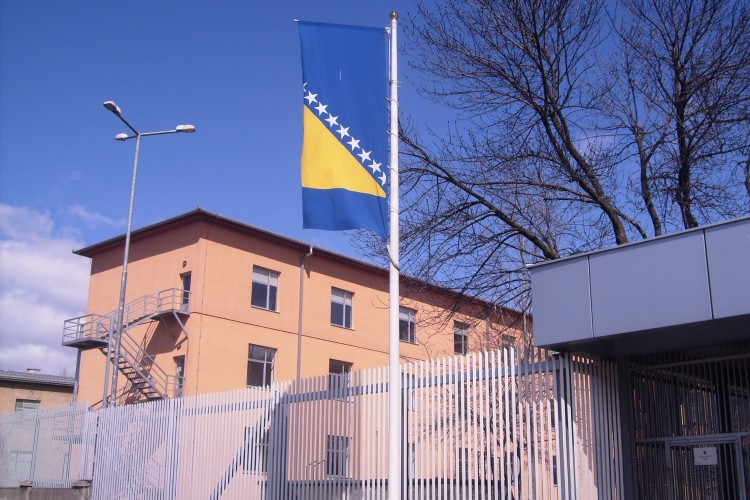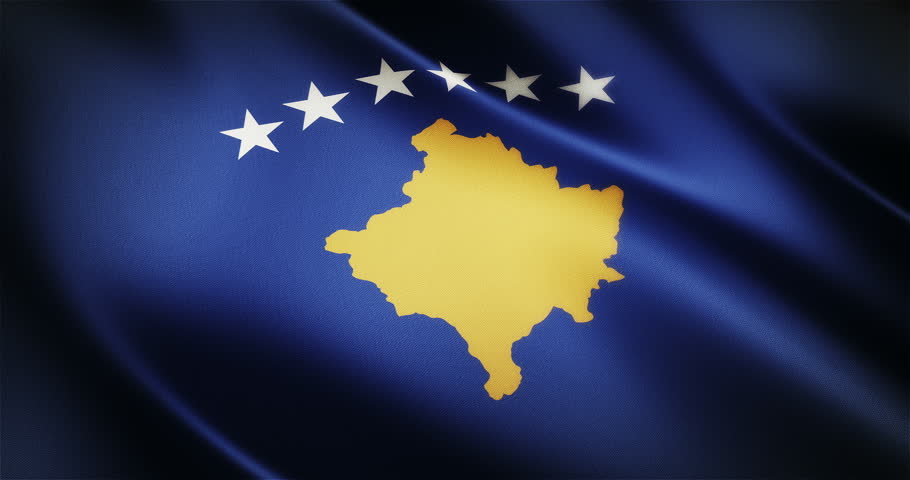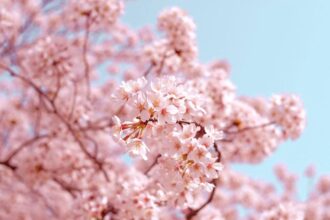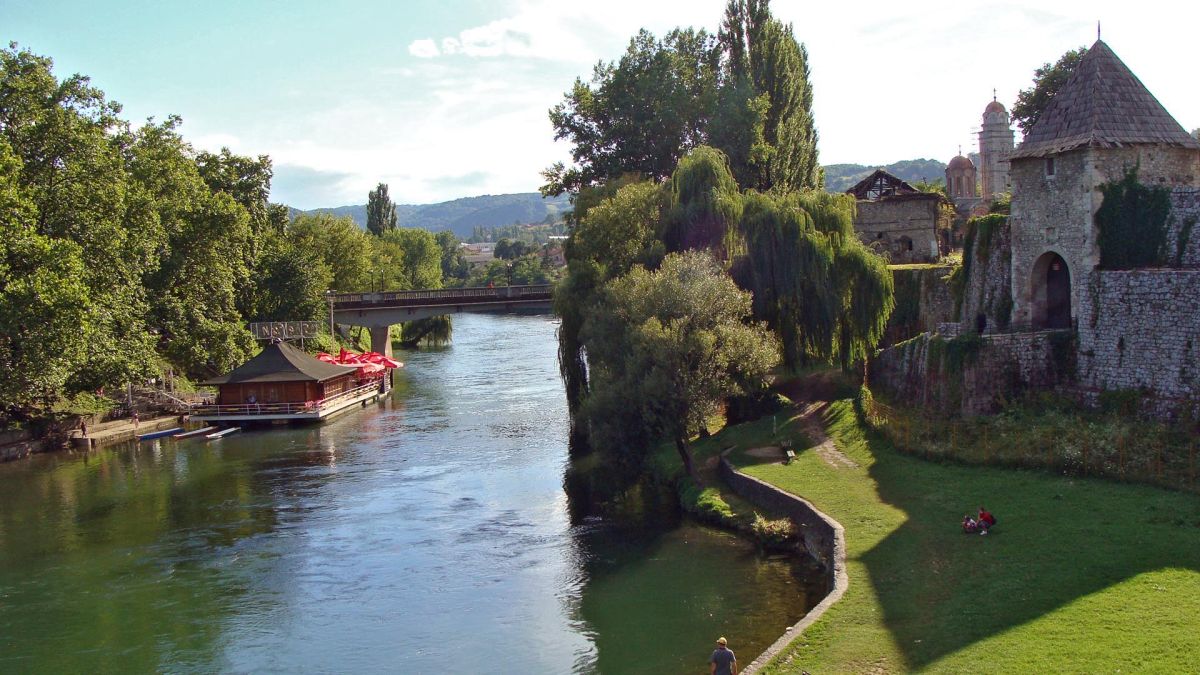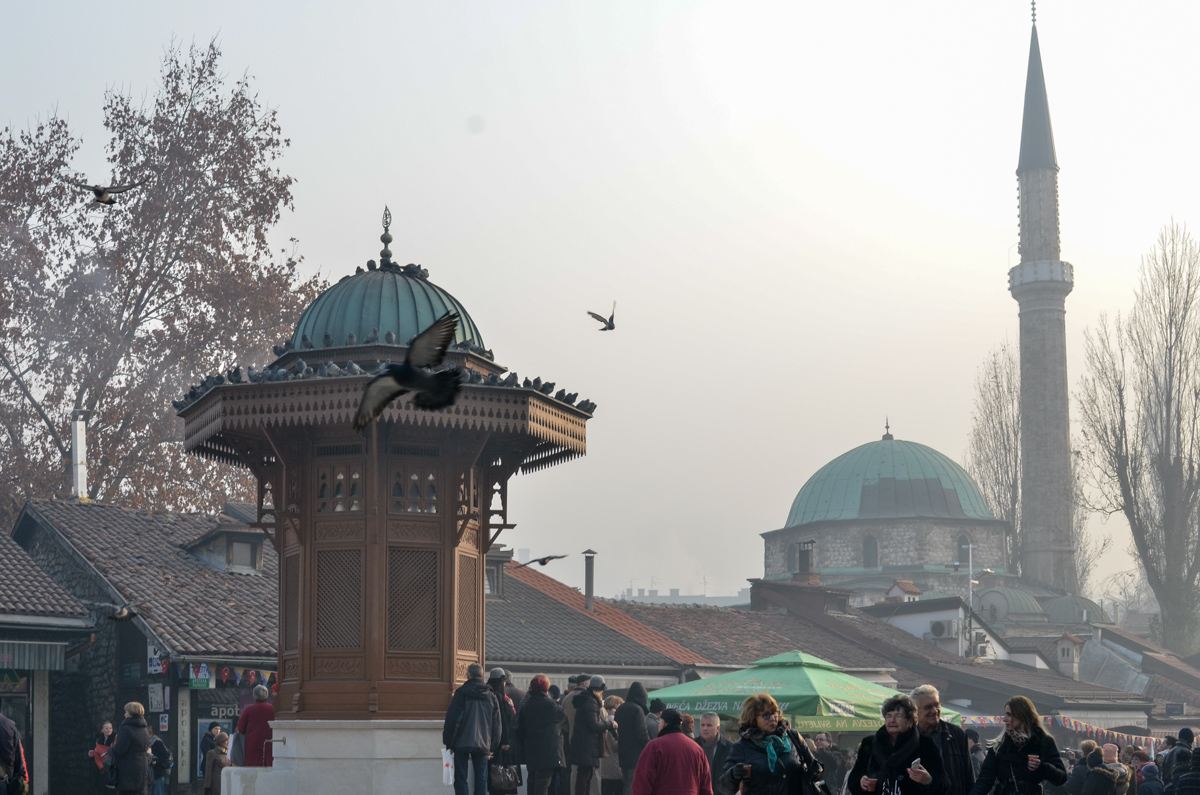
“Bosnia stood out in my memories because of the hospitality we received from the people,” says an American travel blogger who was moved by the warmth and resilience of Bosnians, and wants others to know.
The coronavirus pandemic has significantly affected tourism in both Bosnia and Herzegovina and the greater Balkan region, as international travel has become difficult for people globally, particularly those wanting to traverse across continents and non-land border visitors.
With COVID-19 having impacted people’s capacity and willingness to holiday, travel lovers from across the world have been taking to social media to publicly reminisce of past visits to Herzegovina’s famous Stari Most, using the hashtag #mostar.
World traveller Kelly Urig from San Diego, America, who has been to 51 different countries, and visited Bosnia for four days in August 2019, is one of the many people who have recently posted photographs of their trip to Bosnia and Herzegovina on Instagram.
In speaking with the Sarajevo Times, she said one of her reasons for recently posting about her 2019 trip to Mostar was motivated by her desire to share her positive experience of Bosnia and Herzegovina with her online audience.
“A lot of Americans have very little knowledge about Bosnia and its history,” she told the Sarajevo Times.
“Many think that it could be an unsafe place to travel because they are not informed.
“I wanted to share our experience so that my followers would be more informed,” she explained.
“The history is complex,” said the American blogger, “and I think, important for travellers to learn.
“This history and culture is part of what makes Mostar so beautiful,” she added.
Ms. Urig told the Sarajevo Times that the warmth of Bosnian people she encountered during her visit was more meaningful to her than the visual beauty of the country itself.
“The hospitality at our hostel and throughout our time in Mostar was above and beyond what we received in almost all the other countries we’ve visited,” she said.
“So when I think of Mostar, I think of the people…the two are linked.
“While Mostar is beautiful in its own right, it became even more beautiful because of the kind people,” the globe-trotter added.

Ms. Urig told the Sarajevo Times that the tour she went on during her stay at a hostel in Mostar was transformational and eye-opening.
“Bata’s tour [Bata’s Crazy Mostar Tour] was honestly a life changing experience for us.
“He gave his first hand account of living through the war and what he and his family went through,” she said.
“Part of what we loved about Bosnia was how kind the people are, and how despite how much trauma they endured during the war, they still maintain this kindness and hospitality to visitors,” Ms. Urig told the Sarajevo Times.
“That they could go through such a dark chapter and [yet] still maintain a kindness to foreigners and to those that turned a blind eye to their suffering during the war,” she added.
The American traveller recounted to the Sarajevo Times an evening during her Mostar trip where she and her partner were sitting at a restaurant at dusk in the old town, and had a spiritual experience.
“The call to prayer had started and echoed through the town along with the sounds of the river…it was a moment that took my breath away,” she said.
“While we are not Muslim, hearing the call to prayer at sunset while enjoying such natural beauty around us was a moment where we were thanking God for all of it….for our lives, for the beauty, for this town of Mostar and its people.
“We felt a moment of profound love.”
An additional reason for sharing her last year’s Bosnian travel memories on social media of late, Ms. Urig said, was because she believed that the themes surrounding the past aggression on Bosnia had an association with the incidents occurring in America now.
“What we learned about the Yugoslavian war I think is relevant to current events in the USA,” she told the Sarajevo Times.
On July 2, Ms. Urig posted a photo of her and her partner in front of Mostar’s famous landmark, the Old Bridge, with a caption that spoke of compassion and a commitment to combating prejudice.
“Without going into detail about everything we learned from Muslim people that lived through the war and their first hand account of the atrocities that fell upon them, I will say this: we need to do better,” the text accompanying Ms. Urig’s post stated.
“Empathy should never be seen as a weakness,” the caption continued, “we need to learn from our collective past, not just the history of the country we were born in.
“We need to educate others that may not yet know how their actions and words are hurtful and inappropriate.
“We need to listen more to those who feel marginalised….we need to be actively anti-racist.”
The caption of Ms. Urig’s post ended with the line, “most of all, be kind to one another.”
Saturday July 11 marked the 25th anniversary of the Srebrenica Massacre, where over 8,000 Bosniak boys and men were murdered by the Bosnian Serb Army, despite UN peacekeeper presence, in a location the United Nations had designated as a ‘safe area’.
Written by Miya Yamanouchi for the Sarajevo Times






